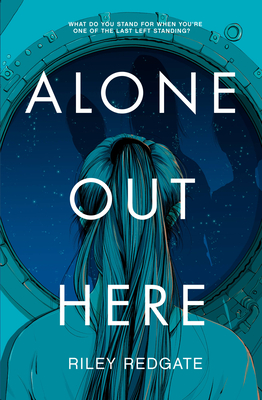What do you stand for, when you're one of the last left standing?
The year is 2072. Soon a volcanic eruption will trigger catastrophic devastation, and the only way out is up.
While the world’s leaders, scientists, and engineers oversee the frantic production of a space fleet meant to save humankind, their children are brought in for a weekend of touring the Lazarus, a high-tech prototype spaceship. But when the apocalypse arrives months ahead of schedule, First Daughter Leigh Chen and a handful of teens from the tour are the only ones to escape the planet.
This is the new world: a starship loaded with a catalog of human artifacts, a frozen menagerie of animal DNA, and fifty-three terrified survivors. From the panic arises a coalition of leaders, spearheaded by the pilot’s enigmatic daughter, Eli, who takes the wheel in their hunt for a habitable planet. But as isolation presses in, their uneasy peace begins to fracture. The struggle for control will mean the difference between survival and oblivion, and Leigh must decide whether to stand on the side of the mission or of her own humanity.
With aching poignancy and tense, heart-in-your-mouth action, this enthralling saga will stay with readers long after the final page.
Argh that ending!
When I was - probably really too old to be watching it - one of my favourite shows was The Tribe. It was a New Zealand produced show set in a world where all the adults have died from a virus, and the children have sorted themselves into tribes to try and survive. It got increasingly surreal as the series went on - in the first season, they were trying to find food supplies and deal with bullying; by the end, they were fighting an AI representation of a cult leader who wanted to release a new version of the virus that would kill them all - but the sheer campy joy of it has never been equaled. I was expecting something less campy, but with that tone, when I read this book.
It's rather harder science, in spots. I was surprised that the ship's corridors are described as winding back and forth 'organically', as surely that would leave a lot of dead space? Plus, one character hides for several weeks in a very small space, and although they discuss bringing food and water, there's no mention of washing, or indeed where they're peeing. Not the point of the story, I know, but it's something I noticed!
The summary had me thinking that Eli's group would not include Leigh, but actually it does include her, right from the start. There are criss crossing loyalties and people move around a lot during the novel. It's a shame, because actually some of Eli's ideas were very good; she just goes about things in the wrong way.
I'm not saying anything about the romance, just that it's inevitable from their first real interaction. I've heard that this is being shelved as LGBT on some websites; one character is gay, but has no romantic interactions with anyone. The only romance we know about is het.
And that ending? Well, what's there to say about it? As we approached it I started thinking this must be part one of a series, because I couldn't see any way for the characters to have a satisfactory ending. It was clever, I'll give Riley that, but I'm not certain it was satisfactory. I'm still chewing it over.
Not a bad read, but not hard sci fi in any sense of the word. Read it more for the social commentary than anything else.
Alone Out Here is available now. I received a free copy and am giving an honest review.

No comments:
Post a Comment